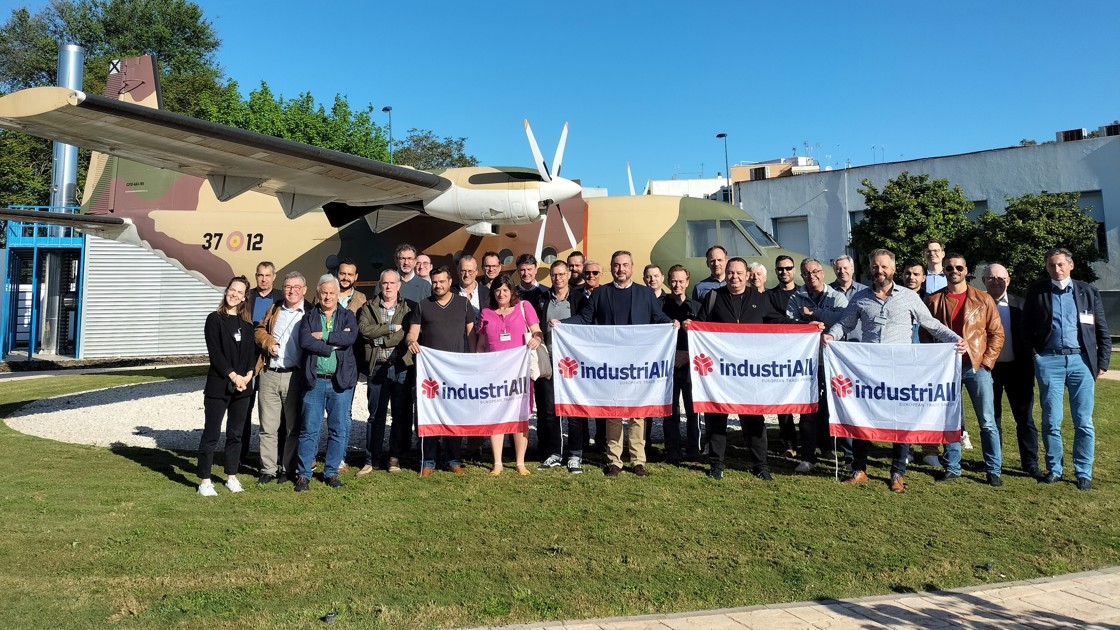For industriAll Europe, it is important that the ongoing consolidation does not come at the expense of workers.
The consolidation of military aerospace technology in Europe has been underway for a long time and is set to continue. It is certain to affect workers and employment in the sector.
How the industry’s remaining European companies will position themselves will be decisive for the future of the industry in Europe. Better cooperation can be achieved through further European integration, but much depends on the strategic decisions of companies and the political will of the EU and its Member States. Ensuring supply chain security will be a key driver for decision making.
For industriAll Europe, it is important that the ongoing consolidation does not come at the expense of workers. It must be planned and discussed at an early stage, respecting the information and consultation rights of the works councils.
Trade union representatives of the European aerospace industry came together in a recent workshop* in Seville, organised by industriAll Europe and the consultancy firm Syndex, to address these questions. 40 participants met in person and online to discuss the challenges of greater military cooperation from an industrial and trade union perspective.
The EU aeronautic sector employs more than 500,000 employees and generated a turnover of more than €170 billion in 2020, a quarter of which is generated by the military branch. Employment in the military aeronautics sector is estimated to be 168,00 jobs. The civilian and military branches are mutually reinforcing and profit from each other.
Trevor Tailor, Professorial Research Fellow in Defence Management at the Royal United Services Institute (RUSI) in London, emphasised that budgetary constraints and the race for talents and skills were common challenges for the military branch of the European aeronautics industry.
Gonçalo Ceballos, adviser to the Spanish General Secretariat of Industry, pointed out that almost 90% of all equipment is already procured within the EU by Member States. Notwithstanding the rivalry between certain projects, more joint projects are likely to emerge. Such further integration could contribute to maximising the European workforce and to boosting European skills development.
The ensuing debate focused on how European integration can be increased, and how this can lead to a better cooperation between all stakeholders, including social partners, along the value chain. Central to this debate will be how to accelerate the development of new systems and the time required to bring them to the market. This will, on the one hand, contribute to the operational readiness of the European armed forces, and on the other hand, make European systems more attractive for the market.
A site visit of the Airbus Tablada plant, which hosts the final assembly line of the Airbus A400M, allowed the workshop participants to meet and discuss with local management and the works council. The relevance of innovation and skills for the workforce and for the future of the site were central to the discussion. Both the management and works council underlined their good cooperation andhow well functioning social dialogue is fundamental to the sustainability of their company.
Isabelle Barthès, industriAll Europe Deputy General Secretary:
“We expect that the ongoing integration of the European defence industries will only accelerate in the near future. These processes must be managed wisely to ensure that this will not be detrimental to quality employment in Europe.
European transnational projects, such as Airbus, show that integration can be a success, if social dialogue is respected and if management and workers’ representatives work together in a good spirit.”
